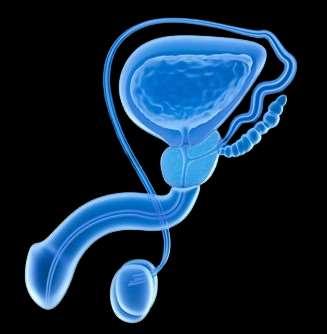












Do you know about sexual problems in men? Do you know what is the science behind this male sexual problem? If you don't know, don't worry. World-renowned Ayurvedacharya Dr. Sunil Dubey, who is an expert in male and female sexual problems, has shared his valuable information about the mechanism of science for the sexual problems. He is also the best sexologist in Patna, Bihar and a leading in India; providing comprehensive treatment to married and unmarried patients at Dubey Clinic (A Certified Ayurveda and Sexology Clinic)
- Dr. Sunil Dubey, Gold Medalist Sexologist


https://ayurvedacharyadrsunildubey.com








Dr. Sunil Dubey says that male sexual problems include a variety of problems that can affect men's sexual health, desire, satisfaction and interest. Usually, these problems are complex, involving a complicated interrelationship of physical, psychological, hormonal and neurological factors. It is very important to know the science behind them for effective diagnosis, prevention and treatment. In this episode, this world-renowned sexologist doctor is going to share valuable information about the most common male sexual problems and their underlying scientific mechanisms responsible for them.
1. Erectile Dysfunction, ED: 12-15%
2. Ejaculation Disorder, EJD: 35-40%
3. Low Sexual Drive or Libido: 22-25%
4. Peyronie's Disease: 2-5%
5. Priapism: 2-3%
• Above mentioned all scientific male sexual problems
• Culture-bounded syndrome:
• Dhat Syndrome
• Nocturnal Emission
• Spermatorrhoea
• Adrenal Fatigue
• Performance Anxiety Disorder



As we have also discussed previously, Erectile Dysfunction (ED) is the consistent inability to achieve or maintain an erection firm enough for satisfactory sexual intercourse, especially for penetrative intercourse. The science behind it involves disruptions in the intricate process of penile erection, which is listed below.
Vascular Issues (Most Common)
Neurological Issues
Hormonal Imbalances
Psychological Factors
Medications and Lifestyle
Lifestyle and Habits

Atherosclerosis: It is condition where hardening and narrowing of the arteries that carry blood to the penile and pelvic area. It's often associated with high blood pressure, high cholesterol, diabetes, excessive alcohol use, and smoking. The arteries in the penile are small, making them more likely to accumulate plaque. It is responsible factor for the erectile dysfunction in men.
Endothelial dysfunction: Damage to the inner lining (endothelium) of blood vessels reduces its ability to make nitric oxide (NO), an important molecule for relaxing smooth muscle and increasing blood flow to the penile. This vascular related issue always makes difficulties in erectile function in men.
Vein leakage: If the veins that drain blood from the penile don't contract properly during an erection, blood may leak out too quickly, leading to no lasting erection. This condition always creates problems to maintain an erection firm for sexual performance.






Nerve damage: Some conditions such as diabetes (diabetic neuropathy), multiple sclerosis, Parkinson's disease, spinal cord injury, or pelvic surgery (e.g., prostatectomy) can damage the nerves that send signals for erections in men. This nerve damage condition always affects the sexual health including overall wellness.
Damaged nerve signaling: Some certain neurological conditions can affect the brain's ability to send and transmit arousal signals. This is really the difficult condition for a person which always lower down the excitement in sexual life.

Low testosterone (hypogonadism): Although this is not always the sole cause, low testosterone can reduce libido (sexual desire) and affect overall erectile response and sexual response cycle.
Other hormones: Imbalances in prolactin (high levels), thyroid hormones, or adrenal hormones may also contribute to erectile dysfunction problem in an individual.






Stress, anxiety, & depression: The brain's role in arousal is paramount for every individual for sexual life. Mental health conditions can disrupt the physical responses needed for sexual desire and erection in men. Performance anxiety, in particular, can create a continual cycle of fear and failure in the sexual activity.
Relationship problems: Interpersonal conflict or a lack of intimacy can also have a negative impact on sexual functioning in men or women. In men's case, it can create erection problem.

Medications: Many medications, including antidepressants, antihypertensives (blood pressure medications), tranquilizers, and some cancer treatments, can have erectile dysfunction as a side effect. That's why; always care for the health, especially taking those medicines.

Smoking, excessive alcohol consumption, illicit drug use (recreational medicine), obesity, and a sedentary lifestyle contribute to the underlying physical conditions that cause erectile dysfunction in men.




These include problems with the timing or nature of ejaculation.
Premature ejaculation (PE): Ejaculation that happens too early, often before penetration or shortly after. The science behind it always links it to psychological, neurotransmitter, sensitivity, nerve damage and thyroid problems.
Although the causes are often psychological (anxiety, stress, learned behaviors), there can also be biological causes:
Neurotransmitter imbalance: Low levels of serotonin in the brain are often to blame, as serotonin helps delay ejaculation.
Hypersensitivity: Increased sensitivity of the penile.
Nerve damage: Rarely, nerve damage from certain conditions.
Thyroid problems: Hyperthyroidism can sometimes contribute to this.



Delayed ejaculation (DE): A significant delay or inability to ejaculate despite adequate sexual stimulation and excitement in sexual activity.
The science behind it:
• Neurological damage: Nerve damage due to diabetes, spinal cord injury, or surgery (e.g., benign prostatic hyperplasia – BPH).
• Medications: Many medications can cause delayed ejaculation, including antidepressants (especially SSRIs), some blood pressure medications, and alcoholism.
• Hormonal: Low level of testosterone.
• Psychological: Performance anxiety, depression, relationship problems, strict religious upbringing, or fear.



Retrograde ejaculation: Semen enters the bladder instead of flowing out of the penile during climax. It is also a cause of infertility problem in men.
• The science behind it: This occurs when the bladder neck, which normally closes during ejaculation, fails to close.
• Nerve damage: It is often caused by conditions such as diabetes or multiple sclerosis.
• Surgery: Common after prostate or bladder surgery.
• Medications: Some medications, especially alpha-blockers used for BPH, can do this by relaxing the bladder neck.
Anejaculation: The complete lack of ejaculation in men during sexual activity. The science behind it: It is similar to delayed ejaculation, often caused by severe damage to the nerves, surgical removal of the seminal vesicles/prostate gland (radical prostatectomy), or certain medications





A persistent lack of interest or desire in sexual activity, thoughts, or arousal. The science behind it:
Hormonal imbalances: Low testosterone levels, as well as problems with prolactin or thyroid hormones. These hormonal imbalances can reduce a person's sexual desire.
Psychological factors: Depression, anxiety, chronic stress, relationship problems, fatigue, and body image issues are the main causes.
Medical conditions: Chronic illnesses (e.g., kidney failure, heart disease), obesity, and sleep disorders.
Medications: Many medications, especially antidepressants, opioids, and some blood pressure medications, can reduce libido.
Aging: Although sexual desire may change with age, a significant decrease is not always "normal" and should be investigated.




A condition in which fibrous scar tissue (plaques) develops inside the penile, causing the penile to bend or become crooked and sometimes painful during arousal. The science behind it: The exact cause is not fully understood, but it is thought to be due to:
Trauma: Repeated minor injury to the erect penile (e.g., during intercourse) is a leading theory, leading to microscopic bleeding and subsequent abnormal healing.
Genetics: There may be a genetic predisposition for this sexual problem.
Autoimmune factors: Some theories suggest an autoimmune component plays a vital role to lead a person to this problem.
The scar tissue is inelastic and prevents the penile from becoming fully erect during arousal, leading to the characteristic curvature.

Prolonged erection (usually more than 4 hours) that is often painful and not associated with sexual arousal. The science behind it: This is a medical emergency caused by blood getting trapped in the penile.
Ischemic priapism (low-flow): This is the most common type. Blood cannot drain from the penile, leading to a lack of oxygen. Causes include:
• Sickle cell disease
• Certain medications (e.g., some erectile dysfunction drugs, antidepressants, antipsychotics if taken incorrectly)
• Leukaemia
• Spinal cord injury
Non-ischemic priapism (high-flow): Less common, usually due to a fistula (abnormal connection) between an artery and erectile tissue, often caused by trauma, causing irregular blood flow to the penile.
Overall, men's sexual problems are rarely isolated events. They often serve as early warning signs of underlying health conditions, particularly heart disease, diabetes, and neurological disorders. Therefore, it is important to receive a medical evaluation for proper diagnosis and management, which often involves a holistic approach addressing physical, psychological, and




